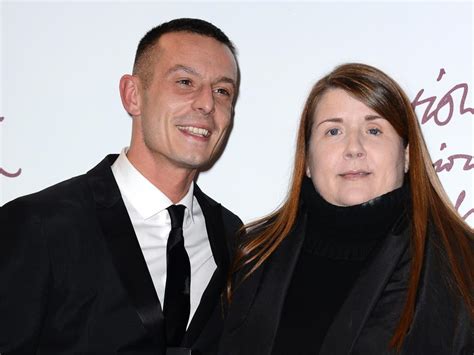A Quote by Mark Zuckerberg
We're a community of a billion-plus people, and the best-selling phones - apart from the iPhone - can sell 10, 20 million. If we did build a phone, we'd only reach 1 or 2 percent of our users. That doesn't do anything awesome for us. We wanted to turn as many phones as possible into 'Facebook phones.' That's what Facebook Home is.
Related Quotes
...playing with the Barbie-size keyboard on my new phone. Phones are like toys now. They fit in your pocket, light up and vibrate like joy buzzers. Plus, you can get-I mean, "access"-the Internet and find anything you want. Music. Maps. Porn. Anything. If cell phones came with a cigarette dispenser, they'd be the greatest stupid invention ever.
The cell phone has transformed public places into giant phone-a-thons in which callers exist within narcissistic cocoons of private conversations. Like faxes, computer modems and other modern gadgets that have clogged out lives with phony urgency, cell phones represent the 20th Century's escalation of imaginary need. We didn't need cell phones until we had them. Clearly, cell phones cause not only a breakdown of courtesy, but the atrophy of basic skills.
Many students don't really like it (fashion). If they don't like it, they won't be able to tell you who the stylists are or the photographers. If they say they can't remember the names but they recognize the work, I'll say that's bullshit because if you were selling mobile phones, you'd know all about the phones' features and tariffs.
The true end users of Facebook are the marketers who want to reach and influence us. They are Facebook's paying customers; we are the product. And we are its workers. The countless hours that we - and the young, particularly - spend on our profiles are the unpaid labor on which Facebook justifies its stock valuation.
We'll get a chance to go through this [Apple versus Microsoft debate] again in phones and music players. There's no chance that the iPhone is going to get any significant market share. No chance. It's a $500 subsidized item. They may make a lot of money. But if you actually take a look at the 1.3 billion phones that get sold, I'd prefer to have our software in 60% or 70% or 80% of them, than I would to have 2% or 3%, which is what Apple might get.


































